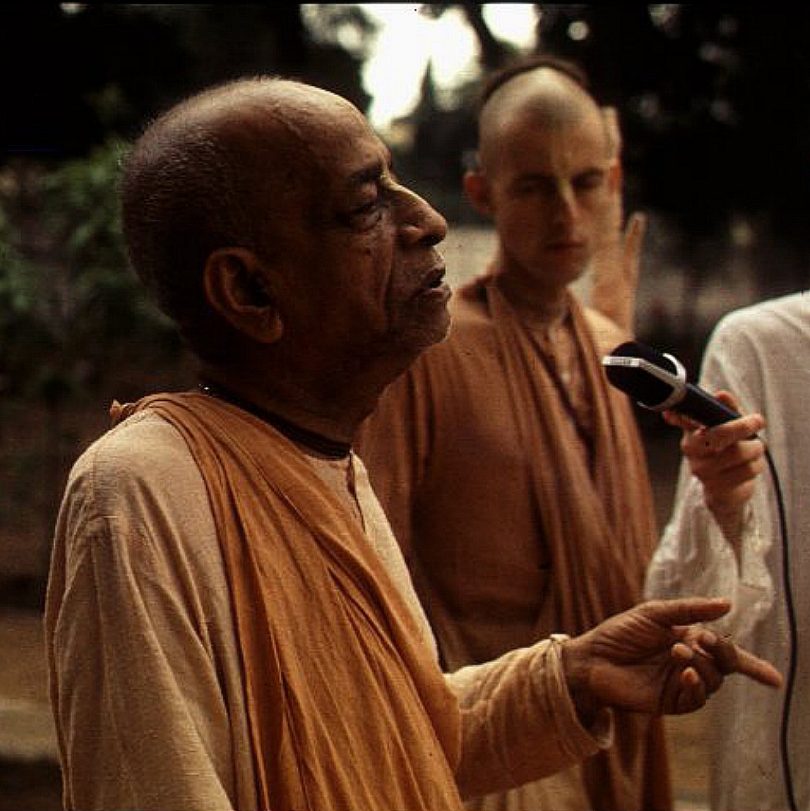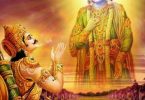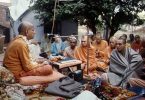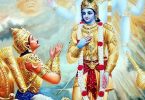Question: Some devotees say the Caturmasya Vratas are not something that Srila Prabhupada gave much emphasis to. According to our scriptures, as followers of ISKCON and practicing Gaudiya vaisnavas are we obliged to observe Caturmasya Vrata to some extent? What are minimum standards that we should strive for? What are some additional standards that may be reasonable to strive for? What are the benefits?
Answer by Romapada Swami:
Based on the quotes shown below, it is my understanding that Srila Prabhupada wanted us to at least generally observe the basics of Caturmasya by abstaining from spinach (some may say all leafy greens), yogurt, drinking milk, and having masura/urad dhal during the respective months. Over and above that, I have never seen or heard of him specifically instructing us to observe any additional austerities as mentioned in Hari Bhakti Vilasa (see below).
During the fourth month of Kartike, which we know in ISKCON as the month of Damordara, in addition to the daily singing of Damodarastakam and offering of a lamp, accepting some personalized vrata is both spiritually beneficial due to the auspiciousness of this month, as well as its helping us to increase our remembrance of Lord Damodara.
Regarding Caturmasya austerities in general, it appears to be a personal choice how far each devotees wishes to observe austerities. However, Srila Prabhupada stresses that the preaching comes first and should not be compromised due to following these and similar austerities.
___
Some quotes regarding Srila Prabhupada’s instructions regarding Caturmasya are as follows:
Caturmasya should be observed by all sections of the population. It does not matter whether one is a grhastha or a sannyasi. The observance is obligatory for all asramas. The real purpose behind the vow taken during these four months is to minimize the quantity of sense gratification. This is not very difficult. In the month of Sravana one should not eat spinach, in the month of Bhadra one should not eat yogurt, and in the month of Asvina one should not drink milk. One should not eat fish or other nonvegetarian food during the month of Karttika. A nonvegetarian diet means fish and meat. Similarly, masura dhal and urad dhal are also considered nonvegetarian. These two dhals contain a great amount of protein, and food rich in protein is considered nonvegetarian. On the whole, during the four-month period of Caturmasya one should practice giving up all food intended for sense enjoyment.
>>> Ref. VedaBase => Madhya 4.169
Persons who identify with bodily existence are attached to the fruitive activities described in the Vedic literature. For example, in the Vedas it is said that one who observes the caturmasya vow will attain eternal happiness in the heavenly kingdom. In Bhagavad-gita, it is said that this flowery language of the Vedas mostly attracts persons who identify with the body. To them such happiness as that of the heavenly kingdom is everything; they do not know that beyond that is the spiritual kingdom, or kingdom of God, and they have no knowledge that one can go there. Thus they are bereft of transcendental knowledge. Such persons are very careful in observing the rules and regulations of household life in order to be promoted in the next life to the moon or other heavenly planets. It is stated here that such persons are attached to gramya-sukha, which means “material happiness,”
without knowledge of eternal, blissful spiritual life.
>>> Ref. VedaBase => SB 4.2.22
71-08 “For your hair you can try a little castor oil. So far the milk fast, if possible you can observe it. But these things are not so important. For preaching work we have to make so many adjustments.” (SPL to Himavati, August 27th, 1971)
75-08 “Yes, it is all right for you to observe Caturmasya if you can manage in the mornings. The Deities should be offered the regular prasada. The Deities are not devotees, They are Lords. But, it is a fact that Lord Caitanya observed, as we find in Caitanya caritamrta, but it is not necessary for Them to follow there in your temple.” (SPL to Madhudvisa Swami, 4th August, 1975)
75-11 “Regarding your coming to India and traveling with me, oh! yes, you are welcome. It is very good that you have been observing Caturmasya. I have already sent through Brahmananda Swami a telegram approving your travel program. That’s very nice that you will travel to the South-East Asian countries, Indonesia, Thailand, Malaysia, Hong Kong and also China. That is very nice.” (SPL to Madhudvisa Maharaja, 18th November, 1975)
76-07 “Unless absolutely necessary, one should keep head shaven and not allow the hair to grow long. If absolutely necessary, one can dress like an American gentleman, with short hair, but long hair is prohibited. The reason that one with long hair is not my disciple is because he is against the principle. Unless absolutely necessary one should keep hair short, and if necessary one can dress like an American gentleman with short hair. It is not expected that everyone will join. For that reason we can’t compromise.
The tendency is there to be hippy. When the acaryas are seen with beard, that is during caturmasya, July-September. If observed strictly there is not simply a beard. There are so many rules and regulations. One can’t eat a variety of foods. Only khicari prepared and poured on the floor, and then licked up. There are so many other rules also. That is not always that they kept beard.” (SPL to Dhrstaketu dasa, 17th July, 1976)
After breakfast Prabhupada called for Yasodanandana and Mahamsa Maharajas who are both growing their hair and beards on the plea of observing caturmasya. Srila Prabhupada told them it was inappropriate that they look dirty and unclean on such an important occasion. His criticism had the desired effect for they both left and immediately shaved their heads and faces.
>>> Ref. VedaBase => TD 4-3: Hyderabad
Yes! You can practice the restrictions for Caturmasya. Pradyumna Prabhu will send you these under separate cover.
>>> Ref. VedaBase => Letter to: Madhudvisa — Bhaktivedanta Manor 28
>>> July,
>>> 1973
Yes, it is all right for you to observe Caturmasya if you can manage in the mornings.
>>> Ref. VedaBase => Letter to: Madhudvisa: — Detroit 4 August, 1975
____
Hari Bhakti Vilasa discusses Caturmasya in the 15th vilasa. There is a short document included in the Vedabase which distills benefits on this topic as follows, much of which is karma kanda.
The Chaturmasya Vrata from Hari Bhakti Vilasa
15th vilasa
Caturmasya Benefits
Bhavisya Purana – “One who passes the Chaturmasya season without observing religious vows, austerities and chanting of japa, such a fool although living should be considered to be a dead man.”
Kanda Purana, Nagava Khunda – “In the month of shravana (July, August) one should refrain from eating spinach. In the month of Bhadra (August,
September) of yogert in Ashvina (September, October) milk. In Kartik (October, November) meat and urd dall.
Various vows and austerities during Chaturmasya and Their respective results.
“O King, one who is My devotee and is fixed in vow, whether man or woman, for the purpose of Dharma, should accept these various austerities and observances. I shall now describe to you all of them along with their respective results.
1) No salt — One’s voice becomes sweet.
2) No oil — One’s life is prolonged and gets progeny.
3) No oil massages — One’s body becomes beautiful.
4) No cooking with oil — One’s enemies are vanished.
5) No licorice and oil — One becomes wealthy.
6) Give up wearing unoffered flowers — One becomes a Vidyadhara in Devapura.
7) Give up six kinds of tastes (spice, sour, bitter, sweet, salty and harsh)
— One never becomes ugly, smelly, or obtains a bad birth.
8) Practice of yoga — One goes to Brahmaloka.
9) No betal nuts — One becomes happy.
10) No cooked food (raw fruits & Vegetables) — One obtains purity.
11) No honey — One becomes lustrous.
12) No yogert or milk — One attains Goloka.
13) No cooking with earthen pots — One gets … (?)
14) No hot food — One gets offspring with a long life.
15) Take rest on the ground or on stone — One becomes an associate of Vishnu.
16) One who gives up meat & honey is a yogi and muni.
17) No intoxicating liquors — One becomes powerful and free from disease.
18) Fast for one day — One is honored in Brahmaloka.
19) No cutting of hair and nails — One gets the benefit of taking bath daily in Ganges.
20) No speaking of gramya katha (nonsense) — One’s order will never be
disobeyed.
21) Eat food on the ground without dish or plate — One obtains a
kingdom on Earth.
22) Chant the mantra Namo Narayana — One obtains the result of giving in
charity 100 times.
23) Offer prayers to the Lord — One gets the result of giving cows in charity.
24) Touch the lotus feet of the Deity — One becomes a successful person.
25) Clean the temple of the Lord — If one is king he remains so for a Kalpa.
26) Circumambulating the temple three times offering prayers — At the
time of death one will mount a swan airplane and go to Vaikuntha.
27) Singing or playing musical instruments in the temple of the Lord — One
goes to Gardharvaloka.
28) Take pleasure in studying the sastras — One goes to Vishnuloka.
29) Sprinkle water in the temple — One goes to apsaraloka.
30) Take bath in a holy place — One’s body becomes pure.
31) Worship Lord Vishnu with flowers — One goes to Vaikuntha.
32) Eat panchagavya — One gets the result of observing candrayana fasting.
33) Eat one meal a day — One gets the results of performing an Agnihotra.
34) Eat at night only — One gets the result of going to all the places of
p ilgrimage.
35) Eat at noon only — One attains Devaloka.
36) Take food not obtained by begging or any extraneous endeavor — One
gets the results of opening water stands and digging wells.
37) Take bath daily — One will never see hell.
38) No eating on a plate — One gets the result of bathing at Pushkara
39) Eat on a leaf — One obtains the result of living at Kurukshetra.
40) Eat on a stone — One obtains the result of bathing at Prayog.
41) Giving up drinking to six hours — One will not be attacked by diseases.
42) During the Chaturmasya, garlands, caranamrta, candana and water from
the conch-shell of the Lord, mahaprasadam, Deity garlands must be accepted.
In this way one who performs this vrata for the satisfaction of Lord Kesava becomes satisfied himself. O best of the Pandavas, among My devotees, he who accepts these vows and austerities during the Chaturmasya goes to my abode at the time of death, of this there is no doubt.
>>> Ref. VedaBase => Caturmasya Benefits







